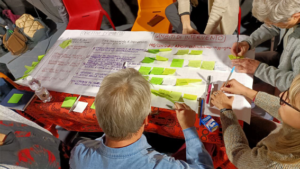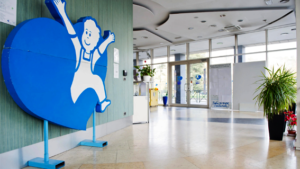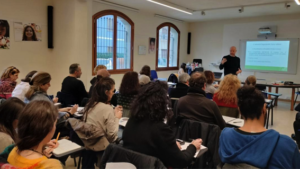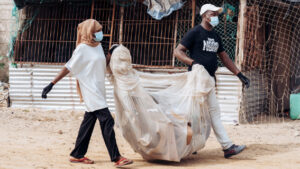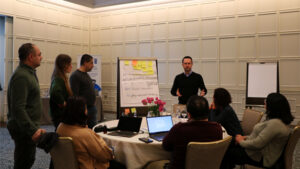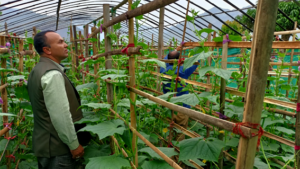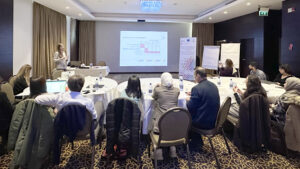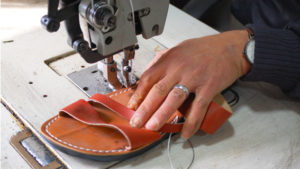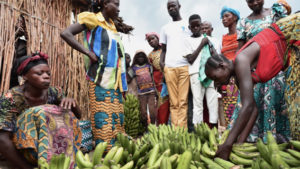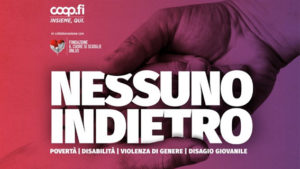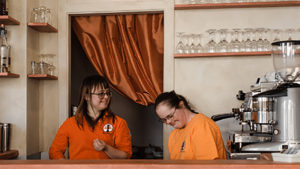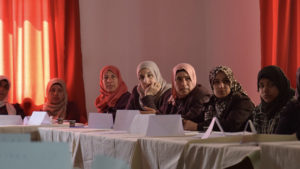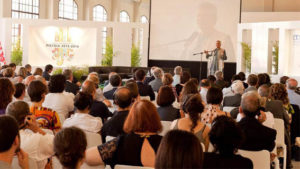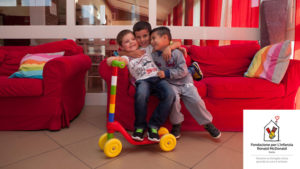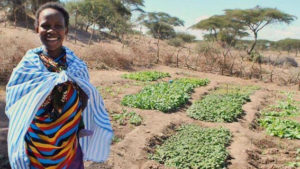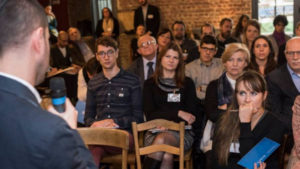Peace Steps in Palestine : mid-term evaluation & Support to the creation of an Ethical Charter
Title Peace Steps: Social and Solidarity Economy experiences for sustainable growth in Palestine
Location West Bank and Gaza, Palestine
Duration 2018-2021
Project leader Vento di Terra
Funding AICS – Italian Agency for Development Cooperation
Context
The project Peace Steps specifically targets crucial micro and macro level stakeholders that operate in what can be conceived as the Palestinian ecosystem for Social Solidarity Economy. In order to make positive and durable changes achievable both in the short and the long run, the project Peace Steps has been designed in such way to operate on multiple levels: from micro-level support targeting CBOs to macro-level awareness-raising and advocacy activities. Indeed, a crucial added value of Peace Steps may be found in its synergies-seeking attitude, testifies by the inclusion in the partnership of both highly qualified international partners and well-consolidated Palestinian actors, whose collaboration is crucial for the future sustainability of the project’s action.
The fact that the ecosystem is still in its inception phase and the Palestinian socio-economic context one of the most complex and volatile in the world, complicated further the task of the project. But Peace Steps has been designed in a very comprehensive way in order to be able to target the specific needs of different contexts of intervention.
The project is rooted in the long-standing presence of Vento di Terra in the country and the close relationship between the NGO and CBOs which represent the core beneficiaries of the project.
More specifically the beneficiaries of the project are:
- Manager and employees of 26 selected CBO/microenterprises
- Policymakers and institutional stakeholders
- Clients and stakeholders benefitting from CBOs activities (including Bedouin communities)
- National and international civil society
The research activity on social entrepreneurship allowed to identify and study a sample of organisations (with different legal forms) that are formally registered in Palestine and that fall within the definition criteria of social enterprise at a local level. In this context, the aim was to strengthen the identified enterprises through the drafting of an Ethical Charter taht was able to help them with local and international marketing in view of market conditions and at the same time influencing them towards choices of products and services that meet criteria of equity and solidarity.
The Ethical Charter therefore aims to create an integrated and innovative development system that rewards virtuous enterprises that adopt responsible policies and procedures, and at the same time promotes the development of economic activities linked to those territories. The Charter will be followed by the development of a brand that companies meeting the requirements of the ethical charter will be able to use for territorial marketing and the promotion of their products and services.
General Objective
In order to understand what results were achieved in the first 18 months of the project Peace Steps, ARCO conducted the mid-term evaluation.
The overall evaluation was structured as a dynamic and participatory learning process, actively involving all relevant stakeholders, including project staff, partners and beneficiaries themselves. This process helped in understanding the relevant role of the for-profit sector both in the elaboration of the Ethical Charter and in the adherence to it.
Our contribution
Despite being originally planned in February-May 2020, the international travel restriction because of the spread of the Covid-19 pandemic forced a revision of the evaluation workplan. At first, the evaluation had been postponed for two months and then Vento di Terra and ARCO decided to carry out the data collection remotely. This decision was accompanied b a recalibration in the mid-term evaluation workplan and data collection strategy.
To carry out the mid-term evaluation, ARCO used mixed methods, qualitative and a quantitative, for data collection and analysis, in order to investigate the complex dynamics behind the attainment of the expected results and outcome, and to understand the role of implementing partners and other actors that participated. Evaluators also took into account the perception of beneficiaries, staff members and implementing partners through participatory methods to develop a proactive attitude towards the project.
The mixed methods were also used for the specific work of the drafting of the Ethical Charter, in particular for:
- the conduction of focus groups with the managers of the social enterprises benefiting from the project in Jericho, Bethlehem, Hebron, Nablus, Jenin, Jerusalem, Ramallah and Gaza;
- the systematisation of information and drafting of the Charter of Ethics;
- the validation of the Ethical Charter with the beneficiary enterprises;
- the support in the identification of the local entity that will promote the Ethical Charter and its brand;
- the preparation of a protocol for adhering to the charter and obtaining the label;
Read more on our Social Economy and Circular Innovation & Sustainable Commodities Units


